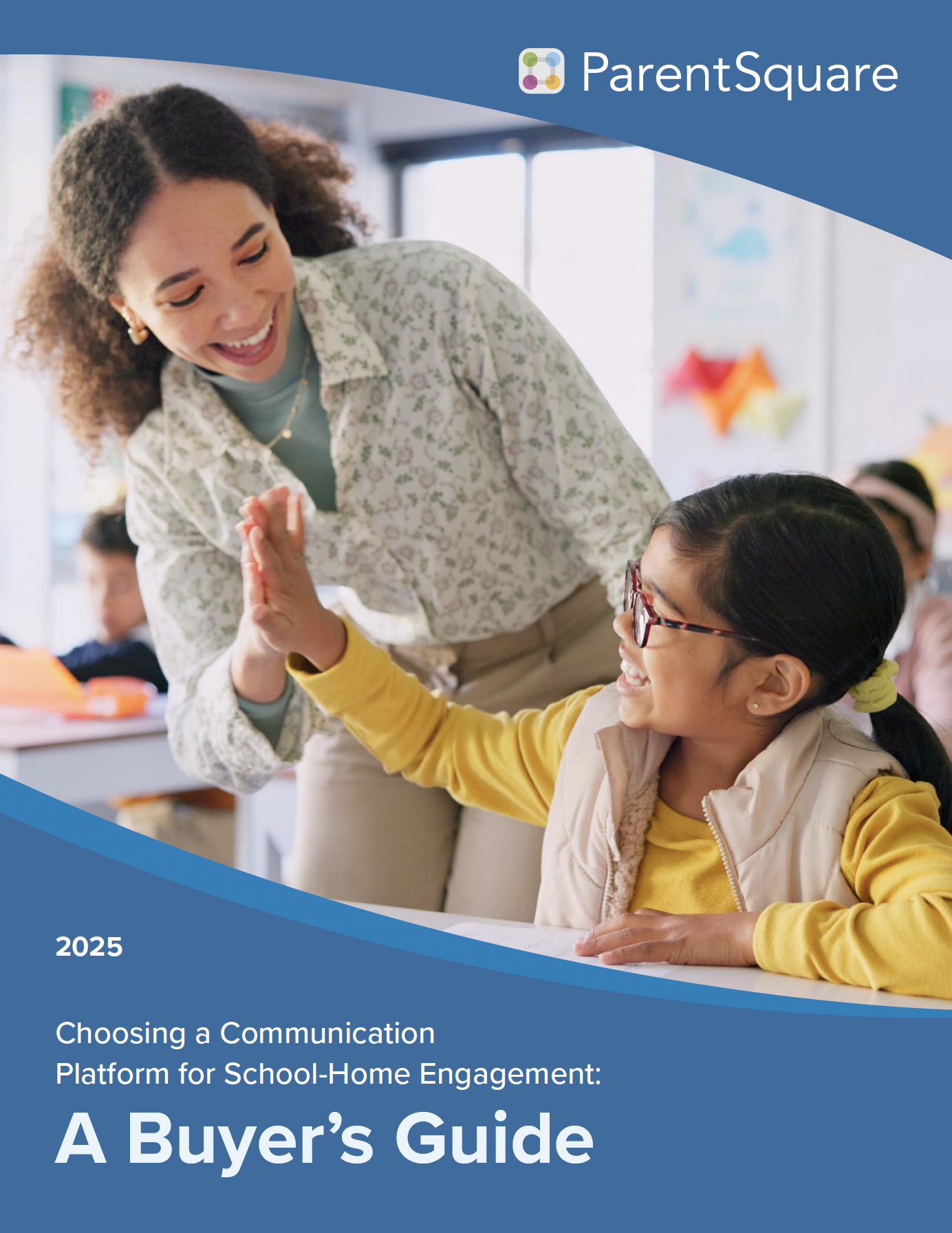 As educators, we talk a lot about the role of teachers in the lives of students and debate the best ways to strengthen the classroom experience for students from all backgrounds. There is only so much a teacher can do, though, particularly with large class sizes and limited resources. Even teachers in the best of circumstances are limited when it comes to hours in the day and the amount of material that must be covered. As K-12 academic standards become more rigorous, parents are becoming an even more integral piece of a student’s success.
As educators, we talk a lot about the role of teachers in the lives of students and debate the best ways to strengthen the classroom experience for students from all backgrounds. There is only so much a teacher can do, though, particularly with large class sizes and limited resources. Even teachers in the best of circumstances are limited when it comes to hours in the day and the amount of material that must be covered. As K-12 academic standards become more rigorous, parents are becoming an even more integral piece of a student’s success.
The timing couldn’t be worse though, from a cultural standpoint. A report released in February by Stanford University that found that the number of U.S. households with two working parents nearly doubled from 25 percent in 1968 to 48 percent in 2008, and that doesn’t even factor in parents who have part-time jobs, health issues or other children that vie for their time. Sending children off to school is a relief for many parents who need a place for their children to go and put their faith in the school to make those hours productive ones.
Asking parents to pick up some of the “slack” for teachers is often perceived as a burden and not as the legitimate parental duty it actually is. If you look at students living in poverty, whose own parents may not have played an active role in their own K-12 learning, the chance of parental involvement in the education process is even slimmer. No teacher would argue the fact that parents ARE needed to maximize student success – so how can educators, and society as a whole, make it so?
The Parental Difference
The most obvious benefit of parental involvement is more time spent on academic learning, with direct results in student performance. There are other benefits too, though, like:
Parents being aware of what is taking place at the school and getting involved.
Parents better understanding where their children may struggle, and not just hearing it secondhand at a teacher conference.
Better attendance and participation for kids who follow the enthusiasm and good example of their parents.
Parent-child bonding over a common goal (and what better one than education?).
Parents Are Important To Children’s Success…Now What
Teachers reading this are likely shaking their heads as their frustration builds. Yes, parents are needed! Yes, students perform better if their parents are involved in their academics! But HOW do we get the message across to parents?
Here are a few approaches that have worked to trigger parental interest in what happens at school:
In Schools
The Sunnyside Schools school district in Washington has designed a pilot program that will engage parents and investigate what methods best keep parents involvement in education of children the highest. Regular, informal meetings are part of the plan and a family advocacy group is working with the school district to find the best solutions.
In June 2013 Chicago Public Schools CEO Barbara Byrd-Bennett unveiled a five-year action plan to help kids get ready for their college, career and life. In that plan, she discussed the importance of holding adults accountable as indispensable allies and says they must enforce homework, turn off the television and make education a priority. To help parents keep children on track, her action plan promises to launch city-wide “Parent Universities” that help parents learn more about appropriate expectations of their children, how to build academic skills and ways to support their college plans. Parents can also learn more to help better their own lives.
Using Technology
ParentSquare is a simple to use, private communication platform that streamlines communication via web, email, text or mobile app. The easy-to-use interface offers two-way messaging, file and photo sharing, event and volunteer sign-up and more. With tabs for messages, events, people, photos, files and other options, parents can log into one system and have all the information they need. In short, ParentSquare makes school-to-home messaging simple, empowering parents to take a more active role in the academic success of their kids. Some of the standout features of ParentSquare include two-way messaging, text, email, web and mobile apps ensure schools reach every parent, and a safe place to store photos.
ParentSquare eliminates overwhelm and fragmentation that can come with the various means of communication available, making it easier for parents to participate and teachers to keep track of their communications.
Although getting parents to the right level of participation will take at least a generation of K-12 students, recent advancements designed to encourage parental involvement in our current cultural climate give us hope that we will see these changes happen.
Article originally posted on The Edvocate
By Mathew Lynch







